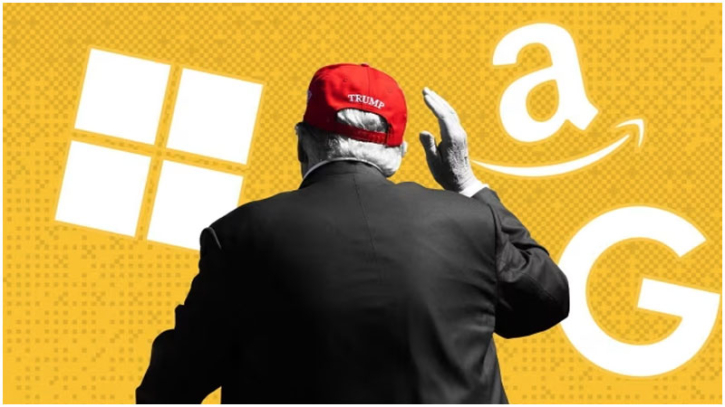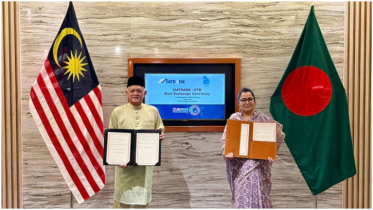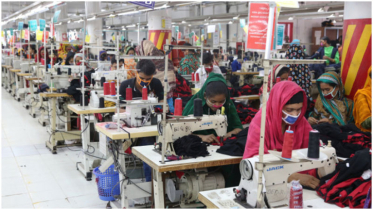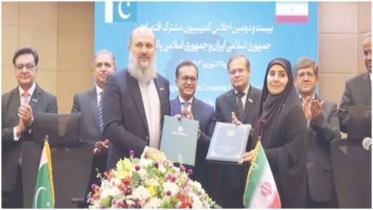Firms scramble to guide workers after Trump unveils H-1B visa fee

US and global companies rushed to issue emergency guidance this weekend after President Donald Trump signed a proclamation imposing a $100,000 fee on applicants for the H-1B skilled worker visa, a move that left businesses and foreign employees scrambling for clarity.
The order, announced on Friday, did not initially specify whether the new rules would apply to existing visa holders, sparking widespread concern across the technology and financial sectors that rely heavily on the program. The H-1B visa is a cornerstone of US hiring in engineering, science, healthcare and finance, with Silicon Valley among the most dependent.
Amazon and Microsoft—two of the largest corporate users of H-1B visas, with more than 15,000 approvals in the most recent fiscal year—told staff not to travel abroad until the rules were clarified. Employees already overseas were urged to return to the US before the measures took effect on Sunday.
Amazon did not respond to a request for comment, while Microsoft declined to comment.
Wall Street firms also issued warnings. JPMorgan Chase advised its H-1B staff not to leave the US “for the time being,” according to a person familiar with the matter. Goldman Sachs circulated a memo urging visa holders to exercise “extreme caution” with international travel.
Fragomen, a leading immigration law firm that handles thousands of H-1B applications, told clients with approved petitions to return before the deadline, underscoring the urgency felt by employers and workers alike.
Facing mounting pressure, the White House sought to calm fears on Saturday. Press Secretary Karoline Leavitt confirmed that the $100,000 charge would be a one-time fee for new applicants only, beginning with the next visa lottery cycle.
“Those who already hold H-1B visas and are currently outside the country right now will NOT be charged $100,000 to re-enter,” Leavitt wrote on X. “H-1B visa holders can leave and re-enter the country to the same extent as they normally would.”
Her remarks appeared to contradict Commerce Secretary Howard Lutnick’s earlier statement that the fee would be annual, highlighting confusion within the administration. In an internal directive, US Citizenship and Immigration Services chief Joseph Edlow instructed officers to ensure their decisions aligned with the clarified guidance.
About 400,000 H-1B applications were approved last year, most of them renewals. Indian nationals accounted for the vast majority. India’s Ministry of External Affairs said the abrupt shift would cause “humanitarian consequences” by disrupting families, and called on Washington to “address the issue suitably.” It also stressed that global talent exchange has been vital to innovation, growth, and competitiveness in both countries.
India instructed its diplomatic missions to extend all possible assistance to nationals returning to the US before the new rules take effect.
In the US, business leaders reacted sharply. Y Combinator chief executive Garry Tan described the decision as a “mistake” that “kneecaps start-ups” and hands a “massive gift to overseas tech hubs” such as Toronto and Vancouver. “In the middle of an AI arms race, we’re telling builders to build elsewhere,” Tan said.
Goldy Hyder, president of the Business Council of Canada, said Ottawa should “redouble efforts to attract the skilled workers we desperately need.” Alex Tapscott of Ninepoint Partners argued the change could make Canada a top destination for displaced talent: “America’s loss can be Canada’s gain.”
The H-1B system has long been divisive in Washington. Supporters, including Trump’s top donor Elon Musk, argue it is vital for US innovation. Opponents, such as former Trump adviser Steve Bannon, claim it undermines American workers.
Trump himself has sent mixed signals. While promising in his 2024 campaign to make it easier for graduates to stay and work in the US, he has also backed tougher scrutiny and restrictions on foreign visas. His latest move reflects the ongoing push-and-pull within his administration between protectionist and pro-business factions.
For now, the White House insists the fee is designed to encourage companies to prioritize American hires. But with companies scrambling and workers left anxious, critics warn the policy risks weakening the US economy’s competitive edge at a moment of rapid technological change.
.png)




